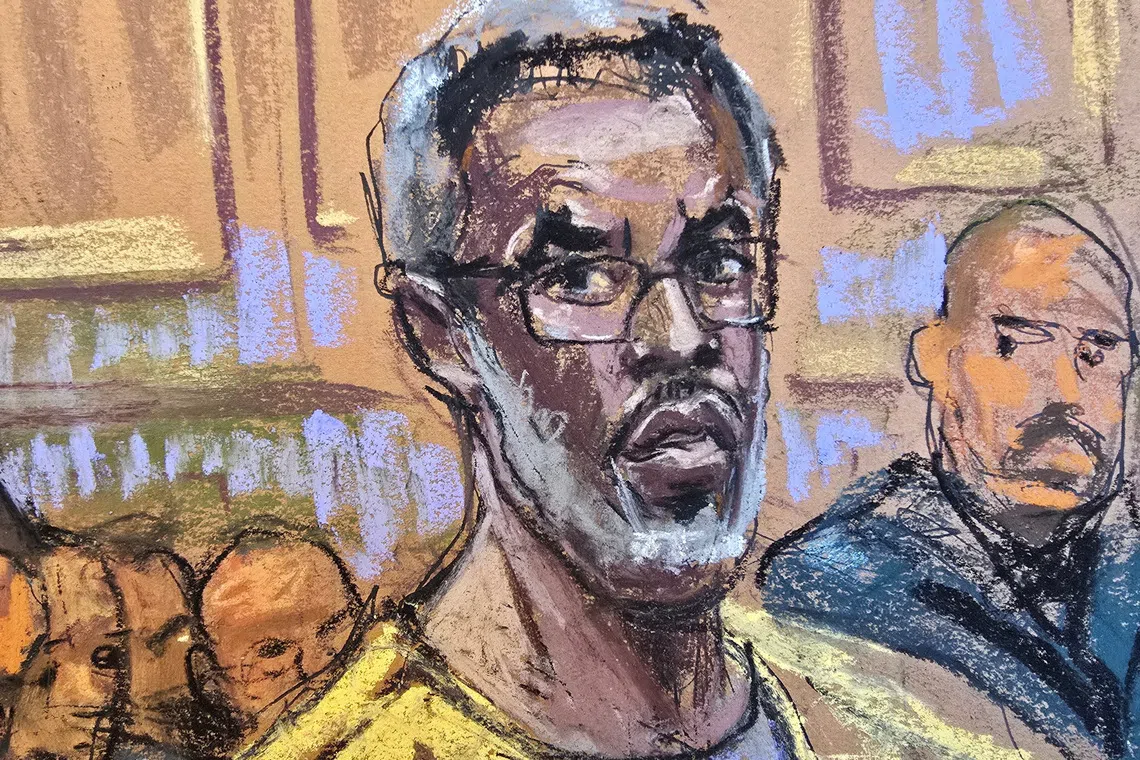US prosecutors seek more than 11-year sentence for Sean ‘Diddy’ Combs
Sign up now: Get ST's newsletters delivered to your inbox

The jury acquitted Sean “Diddy” Combs on the most serious counts he faced, including racketeering and sex trafficking.
PHOTO: REUTERS
NEW YORK – US federal prosecutors urged a judge on Sept 30 to sentence Sean “Diddy” Combs to more than 11 years in prison this week following the hip-hop mogul’s conviction on prostitution-related charges.
The prosecutors sought “at least 135 months’ imprisonment” and asked the court to fine Combs US$500,000 (S$645,000), according to a court filing.
US District Judge Arun Subramanian is due to sentence Combs during a hearing on Sept 26 in Manhattan.
The 55-year-old faces up to 20 years behind bars after a jury on July 2 found him guilty following a two-month trial on two counts of transporting male prostitutes across state lines to engage in drug-fuelled sexual performances with his girlfriends while he watched, recorded videos and masturbated.
The jury acquitted Combs on the most serious counts he faced – racketeering and sex trafficking – charges that could have landed him in prison for life. He pleaded not guilty to all charges and is expected to appeal his conviction.
His defence lawyers last week urged the judge to impose a 14-month sentence, arguing Judge Subramanian should not consider evidence of abuse by Combs against his former girlfriends because jurors acquitted him of coercing them into sex.
Under such a sentence, Combs would be released by the end of 2025 because he would be credited for the time already spent in jail at Brooklyn’s Metropolitan Detention Centre following his Sept 16, 2024, arrest.
Combs founded Bad Boy Records and is credited with popularising hip-hop in American culture.
During the trial, prosecutors said Combs coerced two of his former girlfriends to take part in the performances, sometimes known as “Freak Offs”.
Both women testified that Combs physically attacked them and threatened to cut off financial support if they resisted the encounters.
His lawyers argued there was no direct link between what they called domestic violence and the women’s participation in the Freak Offs, a strategy that ultimately resulted in their client’s acquittal on the sex trafficking and racketeering counts. REUTERS


